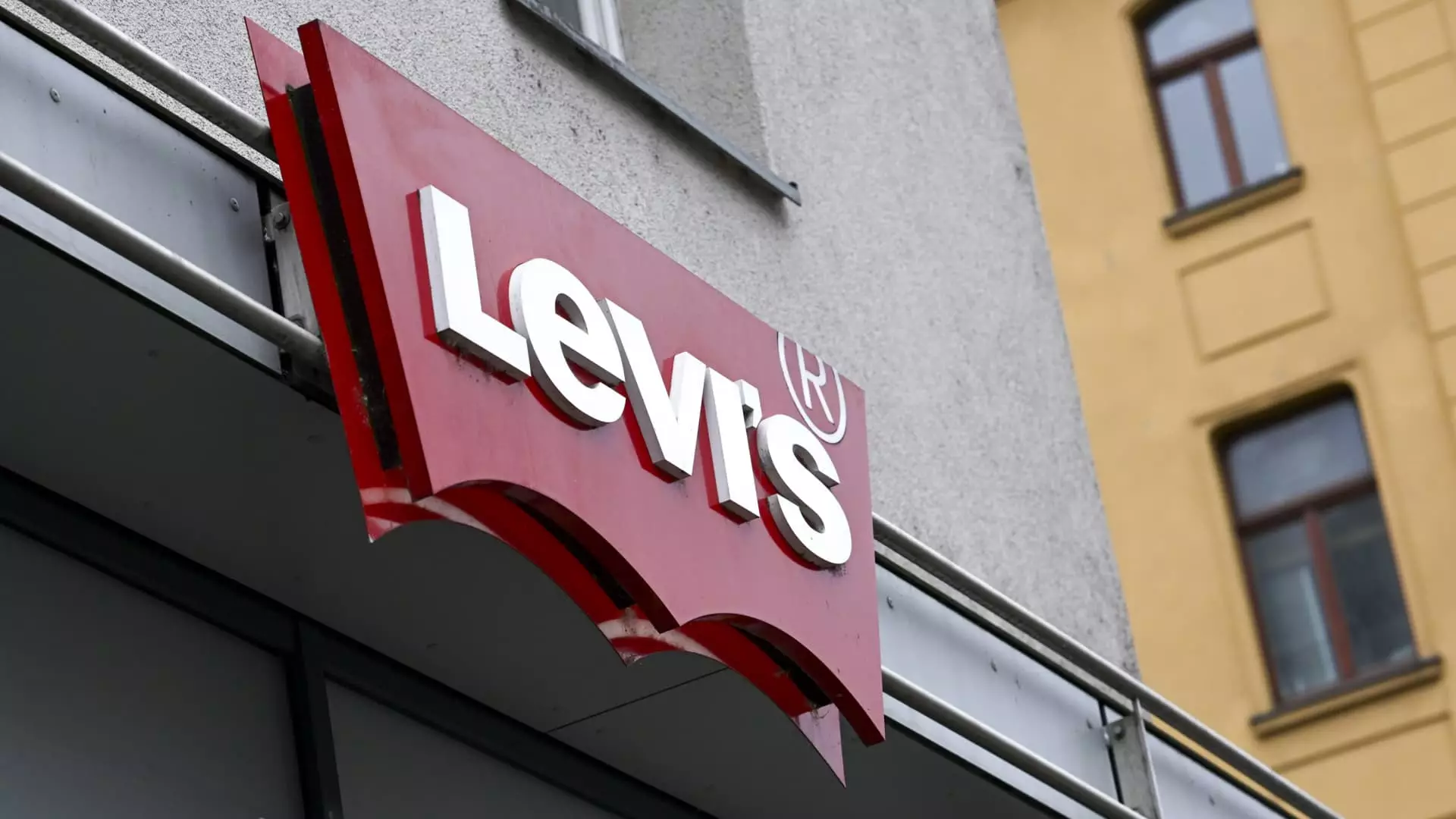In a strategic pivot that resonates deeply with the ongoing transformations in the fashion industry, Levi Strauss has chosen to sell its iconic brand Dockers to Authentic Brands Group for a staggering $311 million. At first glance, this transaction appears pragmatic; however, it reflects a more alarming trend in the world of fashion, where legacy brands grapple with their relevance amid evolving consumer preferences. While CEO Michelle Gass frames the decision as part of Levi’s vision for a “direct-to-consumer first approach,” it raises critical questions about the brand’s long-term strategy and commitment to its heritage.
The arrangement stipulates that Authentics will claim Dockers’ intellectual property, with Centric Brands stepping in for the operational heavy lifting. This aligns with the contemporary model of brand management that favors streamlined efficiency over the traditional ownership structure. It is indicative of a concerning shift where original creators are relinquishing their brands in favor of management firms, leading to an increasing dilution of brand identity and consumer connection. The question must be asked: Is the sale a sign of Levi’s strategic clarity or a desperate gasp for survival?
The Decline of a once-Mighty Brand
Dockers, which was birthed in 1986 as a countermeasure to denim’s overwhelming presence, once ruled the casual wear landscape. It was synonymous with the professional khaki that parents proudly outfitted their children with for school and work alike. However, as Gass herself points out, the brand has faltered in recent years, unable to adapt effectively as consumer tastes have drifted back to denim. The stark reality is that Dockers has become a relic, an emblem of a bygone era. Gass’s ambition to steer Levi’s towards a more focused, athleisure-centric approach reflects a broader industry trend—moving away from once-popular styles in favor of activewear that resonates with a younger demographic.
The inability to breathe new life into Dockers suggests that the iconic brand has been stranded in a fashion wasteland. One can’t help but feel a tinge of sadness watching a once-revered label fall into obscurity. The brand’s performance has taken a toll on Levi’s overall financial results, culminating in a conscious decision to cut the brand loose. This decision raises an uncomfortable truth: are brands like Dockers destined for obsolescence in a fast-paced, ever-evolving market?
Reimagining Brand Potential Amidst Uncertainty
Entering this transaction, Authentic Brands Group is waving a wand of transformation, promising a revival for Dockers. Their approach hinges on capitalizing on existing markets while formulating a strategy for international growth through effective licensing. Matt Maddox, the president of Authentic, articulates a vision of unlocking “new opportunities” across various global platforms. But can the revival really occur without addressing the core essence of what made Dockers appealing in the first place?
While international markets still show promise for Dockers, the endeavor to remodel a brand mired in historical context to fit modern sensibilities can often lead to discord. Authentic Brands Group can execute all the strategic maneuvers it wants, but the truth remains: brands flourish based on emotional connections they have built with their consumers. Without a careful and respectful approach to rebranding, Docker’s legacy risks becoming an amalgam of trend hunting devoid of substance.
The Bigger Picture—A Cultural Reflection
Levi’s divorce from Dockers is not simply a corporate maneuver; it reflects larger cultural shifts in how we perceive fashion brands. The fashion industry is often criticized for its fickle nature, where today’s trend can lead to tomorrow’s sacrificial lamb. This constant cycle of brand ownership changes creates a disconnect with consumers who crave authenticity and consistent narrative. When brands are treated merely as assets to be bought and sold, we risk losing the rich stories that underline their very existence.
The sale indicates a sobering truth: Brand loyalty is a fragile construct in an era where individual identity is shaped increasingly by perception and relevance. Consumers today are less likely to remain attached to brands lacking an authentic voice or commitment to evolve. As Levi’s takes strides to streamline their offerings and focus on the burgeoning athleisure market, the fate of Dockers serves as a cautionary tale. It underscores a tension between brand heritage and modern consumer expectations—a tightrope that fashion companies must navigate with extreme care to avoid being swallowed by the vortex of change.

